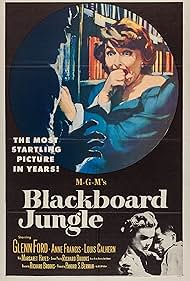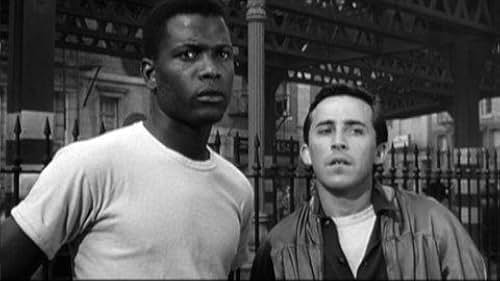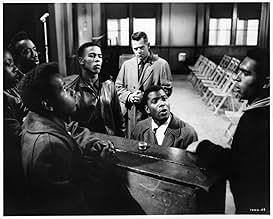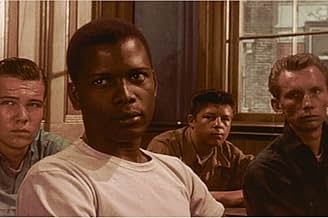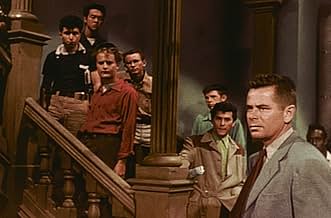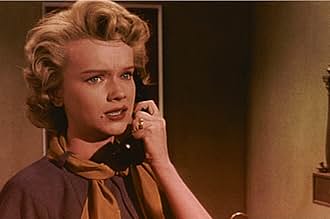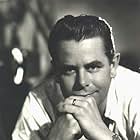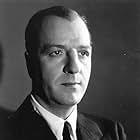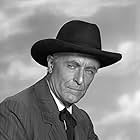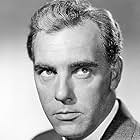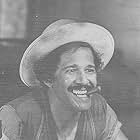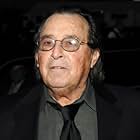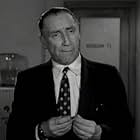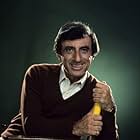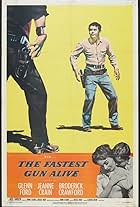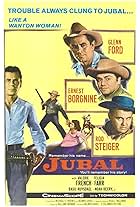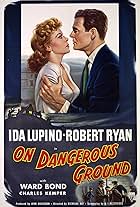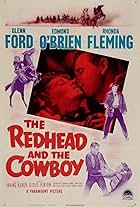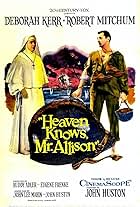A new English teacher at a violent, unruly inner-city school is determined to do his job, despite resistance from both students and faculty.A new English teacher at a violent, unruly inner-city school is determined to do his job, despite resistance from both students and faculty.A new English teacher at a violent, unruly inner-city school is determined to do his job, despite resistance from both students and faculty.
- Nominated for 4 Oscars
- 1 win & 6 nominations total
Jamie Farr
- Santini
- (as Jameel Farah)
David Alpert
- Lou Savoldi
- (uncredited)
- Director
- Writers
- All cast & crew
- Production, box office & more at IMDbPro
Storyline
Did you know
- TriviaClare Boothe Luce, then U.S. Ambassador to Italy, prevented the film from being shown at the Venice Film Festival; and a Senate committee had decided that the film would not have beneficial effects on contemporary youth. Both incidents only served to increase publicity and ticket sales for the controversial movie.
- GoofsIn the garage scene, when Miller starts fixing the car, he says "nobody gives a hoot", but his lips indicates he really says "nobody gives a damn". The replacement of the profanity is made humorous by the director, who chose to play the sound effect of a car horn when the word "hoot" is uttered.
- Quotes
Richard Dadier: Yeah, I've been beaten up, but I'm not beaten. I'm not beaten, and I'm not quittin'.
- Crazy credits"We, in the United States, are fortunate to have a school system that is a tribute to our communities and to our faith in American youth. Today we are concerned with juvenile delinquency -- its causes -- and its effects. We are especially concerned when this delinquency boils over into our schools. The scenes and incidents depicted here are fictional. However, we believe that public awareness is a first step toward a remedy for any problem. Is is in this spirit and with this faith that BLACKBOARD JUNGLE was produced."
- Alternate versionsThe film was originally rejected in the UK for containing "unbridled, revolting hooliganism" and having a "damaging and harmful effect (on teenagers)". Following protests from the distributor, it was viewed again but there was an even split between examiners in favor of banning it again or cutting it for an X (16) certificate. After further meetings where the distributor claimed it had a sincere moral purpose, a cuts list was drawn up which removed around five minutes of footage. This included the following:
- The foreword which absolved the US of blame regarding its realistic depiction - this was added specifically for foreign releases following the huge controversy it caused back home. It reads: "We, in the United States, are fortunate to have a school system that is a tribute to our communities and to our faith in American youth. Today we are concerned with juvenile delinquency -- its causes -- and its effects. We are especially concerned when this delinquency boils over into our schools. The scenes and incidents depicted here are fictional. However, we believe that public awareness is a first step toward a remedy for any problem. It is in this spirit and with this faith that BLACKBOARD JUNGLE was produced."
- Male pupils leering at women.
- A boy assaulting a female teacher.
- Dadier being attacked.
- Dadier being threatened by a knife-wielding pupil.
- The planning and execution of a van robbery.
- Dadier fighting back against a pupil.
- ConnectionsEdited into Heavy Petting (1989)
- SoundtracksRock Around the Clock
Written by James E. Myers and Max Freedman
Performed by Bill Haley and the Comets
Courtesy of Decca Records, Inc.
Featured review
James Dean's untimely death in September of 1955 made "Rebel Without a Cause" a booming box office and critical success. Overshadowed due to that was "Blackboard Jungle", a superior and more important film than the aforementioned "Rebel Without a Cause" (contrary to popular belief admittedly). It is New York in the mid-1950s and former military man Glenn Ford (in his greatest screen role) takes a job as a high school teacher in the inner-city. Soon it is blatantly apparent that the school is full of male thugs (most notably guys like Sidney Poitier, Vic Morrow, Paul Mazursky and even Jamie Farr) who run things with total disregard of faculty rules and policy. Ford becomes enraged and proves to be a lot tougher than originally thought. However when pregnant wife Anne Francis starts receiving anonymous phone calls and letters from one of Ford's students about a possible affair between he and one of his female co-workers, the real fireworks start. At first Ford believes that Poitier is the culprit, probably based more on race and Poitier's obvious intelligence rather than actual proof. It takes lots of time and effort, but Ford becomes determined to get through to his pupils and weed out those who are trying to impede his progress and the advancement of others at his school. "Blackboard Jungle" is another excellent piece from writer-director Richard Brooks (Oscar-nominated for writing). It is the first truly legitimate movie that dealt with 1950s teenage angst and it rises above every other movie of the genre. Ford is a revelation, once again showing that he is probably the most under-appreciated actor throughout the history of the cinema. With that said, "Blackboard Jungle" is likely best remembered as Poitier's breakthrough role, a role which ultimately led to outstanding movie after outstanding movie throughout the late-1950s and 1960s. Poitier, 28 at the time, plays much younger than he was and adds much emotion and depth to a potentially flat character. A booming rock'n'roll soundtrack and top-flight performances dominate Brooks' outstanding winner. 4.5 out of 5 stars.
Details
Box office
- Budget
- $1,168,000 (estimated)
- Runtime1 hour 41 minutes
- Color
- Aspect ratio
- 1.75 : 1
Contribute to this page
Suggest an edit or add missing content

